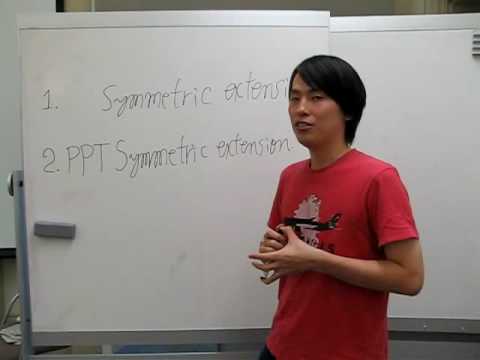Welcome to Quantiki
Welcome to Quantiki, the world's leading portal for everyone involved in quantum information science. No matter if you are a researcher, a student or an enthusiast of quantum theory, this is the place you are going to find useful and enjoyable! While here on Quantiki you can: browse our content, including fascinating and educative articles, then create your own account and log in to gain more editorial possibilities.
Add new content, such as information about upcoming quantum events, open positions for quantum scientists and existing quantum research groups. We also encourage to follow us using social media sites.
Submitted by
JMiszczak on Sun, 09/08/2009 - 10:41.
Researchers at the National Institute of Standards and Technology (NIST) in Boulder, CO, have demonstrated multiple computing operations on quantum bits--a crucial step toward building a practical quantum computer.
Submitted by
Matjeschk on Thu, 06/08/2009 - 11:11.
Professor (W2) in Theoretical Physics
The successful candidate is expected to do research in quantum information theory, the dynamics of large complex quantum systems, or the space-time aspects of quantum dynamics.
The position will be based at the Institute for Theoretical Physics, and is associated with the research cluster QUEST (Centre for Quantum Engineering and Space-Time Research).
Close collaboration with QUEST and with the quantum information group of R. F. Werner is expected.
Screening will begin on September 15th.
Submitted by
Peastham on Tue, 04/08/2009 - 19:07.
A PhD studentship in Theoretical Condensed Matter Physics/Semiconductor Optics is available in the School of Physics at Trinity College Dublin, in the area of many-body phenomena in coupled light-matter systems (such as quantum dots and semiconductor microcavities). The project will explore many-particle effects in decoherence, using radiatively coupled quantum dots as a model system.
Submitted by
JMiszczak on Sat, 18/07/2009 - 11:15.
Precise control of quantum effects is vital to the realization of entirely new technologies. For example, a computer based on quantum physical principles is expected to outperform today's classical computers. In communication technology, quantum devices are already commercially available which allow secure transmission of data. Controlling the properties of photons down to the quantum level is at the heart of these technologies. In recent years, scientists in the group of Prof.
Authors:
Miguel Navascues, Masaki Owari, Martin B. Plenio
In this paper, we present new progress on the study of the symmetric extension criterion for separability. First, we show that a perturbation of order O(1/N) is sufficient and, in general, necessary to destroy the entanglement of any state admitting an N Bose symmetric extension. On the other hand, the minimum amount of local noise necessary to induce separability on states arising from N Bose symmetric extensions with Positive Partial Transpose (PPT) decreases at least as fast as O(1/N^2).
Submitted by
Burgarth on Tue, 14/07/2009 - 19:26.
Pages


